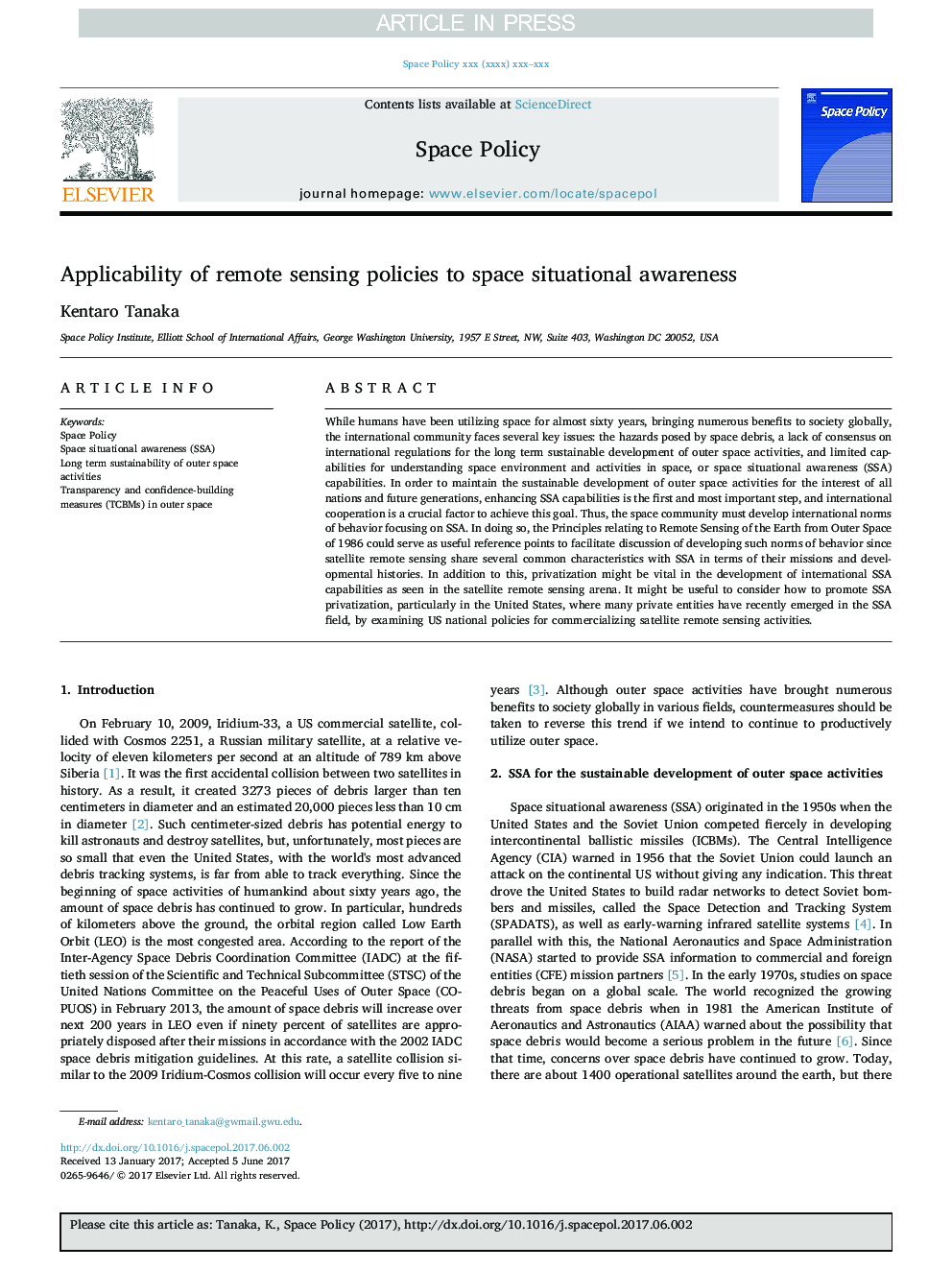| Article ID | Journal | Published Year | Pages | File Type |
|---|---|---|---|---|
| 7538831 | Space Policy | 2017 | 9 Pages |
Abstract
While humans have been utilizing space for almost sixty years, bringing numerous benefits to society globally, the international community faces several key issues: the hazards posed by space debris, a lack of consensus on international regulations for the long term sustainable development of outer space activities, and limited capabilities for understanding space environment and activities in space, or space situational awareness (SSA) capabilities. In order to maintain the sustainable development of outer space activities for the interest of all nations and future generations, enhancing SSA capabilities is the first and most important step, and international cooperation is a crucial factor to achieve this goal. Thus, the space community must develop international norms of behavior focusing on SSA. In doing so, the Principles relating to Remote Sensing of the Earth from Outer Space of 1986 could serve as useful reference points to facilitate discussion of developing such norms of behavior since satellite remote sensing share several common characteristics with SSA in terms of their missions and developmental histories. In addition to this, privatization might be vital in the development of international SSA capabilities as seen in the satellite remote sensing arena. It might be useful to consider how to promote SSA privatization, particularly in the United States, where many private entities have recently emerged in the SSA field, by examining US national policies for commercializing satellite remote sensing activities.
Keywords
Related Topics
Social Sciences and Humanities
Social Sciences
Sociology and Political Science
Authors
Kentaro Tanaka,
